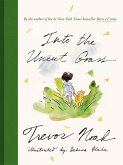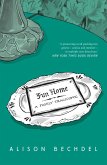In "The Old Maids' Club," Israel Zangwill constructs a rich tapestry of social commentary, revealing the intricate lives and unspoken struggles of unmarried women at the turn of the 20th century. Zangwill employs a blend of sharp wit and poignant introspection, crafting a narrative that balances humor with the gravity of societal expectations. The book encapsulates the Victorian ethos while simultaneously challenging it, promoting a nuanced understanding of love, independence, and the constraints placed upon women of his time. Through the lens of a fictional club, each character'Äôs story unfolds, illustrating both the absurdities and realities that govern their existence. Israel Zangwill, a prominent figure in the early 20th-century literary landscape, was deeply influenced by his own experiences as the son of Jewish immigrants in London. His background armed him with a keen awareness of social injustice and the immigrant experience, which he channels into his writing. Zangwill's works often reflect themes of identity and belonging, and "The Old Maids' Club" continues this exploration through the lens of gender dynamics, shedding light on often-overlooked narratives from his era. Readers seeking an insightful exploration of societal norms and human relationships will find "The Old Maids' Club" to be a profound and entertaining journey. Through Zangwill'Äôs eloquent prose, the struggles and triumphs of the titular club's members resonate with contemporary issues of identity and independence, making this work a timeless study worthy of reflection and discussion.
Dieser Download kann aus rechtlichen Gründen nur mit Rechnungsadresse in A, B, BG, CY, CZ, D, DK, EW, E, FIN, F, GR, H, IRL, I, LT, L, LR, M, NL, PL, P, R, S, SLO, SK ausgeliefert werden.









